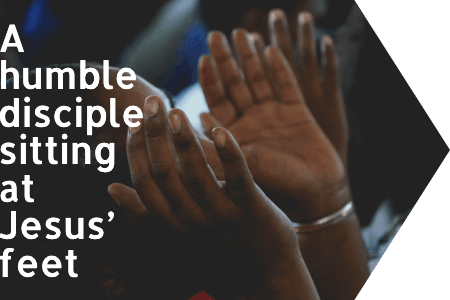Lesson 2: Interpretation Is Moral
Disciples, Not Critics
In that same hour he rejoiced in the Holy Spirit and said, ‘I thank you, Father, Lord of heaven and earth, that you have hidden these things from the wise and understanding and revealed them to little children; yes, Father, for such was your gracious will. All things have been handed over to me by my Father, and no one knows who the Son is except the Father, or who the Father is except the Son and anyone to whom the Son chooses to reveal him.’ —Luke 10:21-22
Within this prayer, Jesus contrasts two sorts of people: the wise and understanding from whom God has hidden truth and little children to whom truth has been revealed. At least two realities stand prominent: genuine knowledge of God is given by God; and human wisdom is insufficient—even a hindrance—for knowing God. These truths point to a posture we must necessarily take as we come to Scripture: we must sit under the word of God as disciples (like children in school), not stand over it as “wise” and “understanding” critics.

Luke’s narrative moves directly into two encounters with Jesus that put this contrast into full color.
The Posture of a Critic
And behold, a lawyer stood up to put him to the test, saying, “Teacher, what shall I do to inherit eternal life?” He said to him, “What is written in the Law? How do you read it?” And he answered, “You shall love the Lord your God with all your heart and with all your soul and with all your strength and with all your mind, and your neighbor as yourself.” And he said to him, “You have answered correctly; do this, and you will live.” —Luke 10:25-28
In verse 25, a lawyer stands to ask Jesus about his teaching. This man is an expert in the Old Testament law and all the Jewish traditions for understanding that law. Luke records very pointedly that the lawyer’s intent is, “to put [Jesus] to the test.” In other words, he comes as one who thinks he understands the Scriptures and plans to judge how Jesus handles them.
But Jesus will not be measured. He does not take the bait. Instead, he resets the hook and casts his own line, asking, “What is written in the Law? How do you read it?” The tester is now being tested. And Jesus’ test puts the focus on interpretation.
The lawyer’s answer is correct, but he still does not understand. Or rather, he doesn’t want to understand. That is why he moves to question the dictionary “And who is my neighbor?” (Luke 10:29b). He wants to save himself from submission to the Word. This man’s desire was to look smart and to judge Jesus—a posture that left him forgetting the meaning of a very simple term.
The Posture of a Disciple
Then follows Jesus’ visit with Mary and Martha.
Now as they went on their way, Jesus entered a village. And a woman named Martha welcomed him into her house. And she had a sister called Mary, who sat at the Lord’s feet and listened to his teaching. But Martha was distracted with much serving. And she went up to him and said, “‘Lord, do you not care that my sister has left me to serve alone? Tell her then to help me.” But the Lord answered her, “Martha, Martha, you are anxious and troubled about many things, but one thing is necessary. Mary has chosen the good portion, which will not be taken away from her.” —Luke 10:38-42
Mary is introduced to us as one, “who sat at the Lord’s feet and listened to his teaching.” By describing her thus, Luke sharply contrasts Mary with the lawyer. Notice their postures in particular. Whereas the lawyer stands to test Jesus, Mary sits at his feet to listen and learn from him.
What is your posture before the God of the Word? When was the last time your heart felt the weight of conviction, or the truth of Scripture genuinely challenged your theology? If you are only ever affirmed in what you already think when you read the Bible, you may not yet be reading as a disciple at the Master’s feet.
Conversion: From Critic to Disciple
Such an attitude toward Scripture does not come naturally to any of us. In fact, becoming a believer necessarily transforms our posture before the word of God. On one level, a non-believer must begin by evaluating the truth of the Bible. Otherwise, how would they know whether they should trust the Bible or some other book like the Koran or the Book or Mormon?
But one cannot become a believer and remain an evaluator. In fact, becoming a believer is becoming a disciple. Or, put another way, conversion is the shift from evaluating Scripture to embracing and submitting to it as a disciple who sits at Jesus’ feet.
Consider the example of Sergius Paulus.
When they had gone through the whole island as far as Paphos, they came upon a certain magician, a Jewish false prophet named Bar-Jesus. He was with the proconsul, Sergius Paulus, a man of intelligence, who summoned Barnabas and Saul and sought to hear the word of God. But Elymas the magician (for that is the meaning of his name) opposed them, seeking to turn the proconsul away from the faith. But Saul, who was also called Paul, filled with the Holy Spirit, looked intently at him and said, "You son of the devil, you enemy of all righteousness, full of all deceit and villainy, will you not stop making crooked the straight paths of the Lord? And now, behold, the hand of the Lord is upon you, and you will be blind and unable to see the sun for a time." Immediately mist and darkness fell upon him, and he went about seeking people to lead him by the hand. Then the proconsul believed, when he saw what had occurred, for he was astonished at the teaching of the Lord. —Acts 13:6-12, emphasis added
This man’s heart and mind were transformed. He shifted from being a curious evaluator of the gospel message to a humble and astonished worshiper of the Lord. Luke’s record of the proconsul’s conversion highlights his posture before the word of God.
Returning to Luke 10, we submit that God would have our posture flow in the direction of this text.



